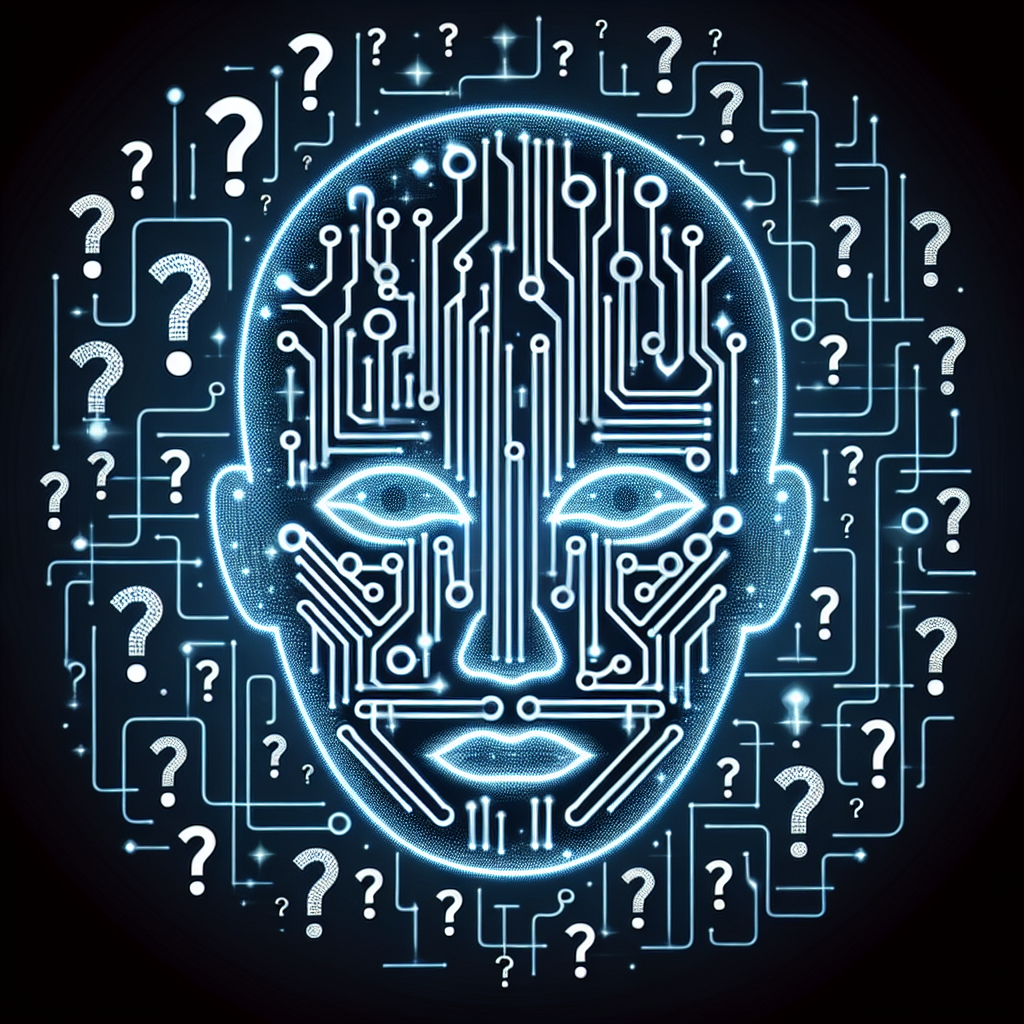In recent years, facial recognition technology has become increasingly prevalent in our daily lives. From unlocking our smartphones to surveillance in public spaces, this technology has the potential to revolutionize various industries. However, with this advancement comes ethical concerns regarding privacy, security, bias, and discrimination. In this article, we will delve into the ethics of AI-driven facial recognition and explore the implications of its widespread use.
### What is AI-driven facial recognition?
Facial recognition technology uses artificial intelligence (AI) algorithms to identify or verify individuals based on their unique facial features. This technology works by capturing an image or video of a person’s face and analyzing it to match against a database of known faces. The AI algorithms compare various facial features like the distance between the eyes, nose shape, and jawline to create a unique biometric template for each individual.
### Ethical concerns surrounding facial recognition technology
1. **Privacy:** One of the most significant ethical concerns surrounding facial recognition technology is privacy. As this technology becomes more widespread, there is a risk that our faces could be captured and stored without our consent. This raises questions about who has access to this data, how it is stored, and how it is used.
2. **Security:** Facial recognition technology has the potential to be hacked or misused, leading to security breaches and identity theft. If this data falls into the wrong hands, it could be used for malicious purposes like stalking or fraud.
3. **Bias and discrimination:** AI-driven facial recognition technology has been shown to have biases, particularly against people of color and women. This bias can lead to false positives or misidentifications, which can have severe consequences for individuals, especially in law enforcement or security settings.
4. **Lack of consent:** In many cases, individuals are not aware that their faces are being captured and analyzed by facial recognition technology. This lack of consent raises concerns about autonomy and the right to privacy.
5. **Surveillance:** The widespread use of facial recognition technology for surveillance purposes raises concerns about government overreach and the erosion of civil liberties. This technology can be used to track individuals’ movements, behaviors, and interactions without their knowledge or consent.
### The ethical implications of AI-driven facial recognition
1. **Invasion of privacy:** Facial recognition technology has the potential to invade individuals’ privacy by capturing and analyzing their faces without their consent. This raises concerns about the collection, storage, and use of biometric data without adequate safeguards in place.
2. **Security risks:** The use of facial recognition technology poses security risks, as this data can be hacked or misused for malicious purposes. This raises concerns about the vulnerability of individuals’ biometric data and the potential for identity theft or fraud.
3. **Bias and discrimination:** AI-driven facial recognition technology has been shown to have biases, particularly against marginalized groups. This bias can lead to false positives or misidentifications, which can have severe consequences for individuals, especially in law enforcement or security settings.
4. **Lack of consent:** The lack of consent in the use of facial recognition technology raises concerns about autonomy and the right to privacy. Individuals should have the right to control how their biometric data is collected, stored, and used.
5. **Surveillance concerns:** The widespread use of facial recognition technology for surveillance purposes raises concerns about government overreach and the erosion of civil liberties. This technology can be used to track individuals’ movements, behaviors, and interactions without their knowledge or consent.
### FAQs about the ethics of AI-driven facial recognition
**Q: How accurate is facial recognition technology?**
A: Facial recognition technology can be highly accurate, with some algorithms boasting a near-perfect match rate. However, the accuracy of this technology can vary depending on factors like lighting, angle, and the quality of the image or video.
**Q: Can facial recognition technology be hacked?**
A: Yes, facial recognition technology can be hacked or misused, leading to security breaches and identity theft. It is essential to implement robust security measures to protect individuals’ biometric data from unauthorized access.
**Q: How can biases in facial recognition technology be addressed?**
A: Biases in facial recognition technology can be addressed by ensuring that the training data used to develop these algorithms is diverse and representative of the population. Additionally, regular testing and auditing can help identify and correct biases in these algorithms.
**Q: What are the legal implications of using facial recognition technology?**
A: The legal implications of using facial recognition technology vary depending on the jurisdiction. Some countries have strict regulations in place to govern the use of this technology, while others have minimal oversight. It is essential to understand the legal framework surrounding facial recognition technology in your region.
**Q: How can individuals protect themselves from the ethical implications of facial recognition technology?**
A: Individuals can protect themselves from the ethical implications of facial recognition technology by being mindful of where and how their faces are being captured and analyzed. They can also advocate for stronger privacy regulations and transparency in the use of this technology.
In conclusion, the ethics of AI-driven facial recognition technology are complex and multifaceted. While this technology has the potential to revolutionize various industries, it also raises significant concerns about privacy, security, bias, and discrimination. It is essential for policymakers, technologists, and the public to engage in a thoughtful dialogue about the ethical implications of facial recognition technology and work towards implementing safeguards to protect individuals’ rights and freedoms.

